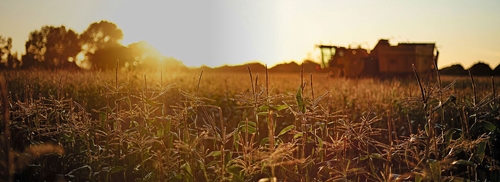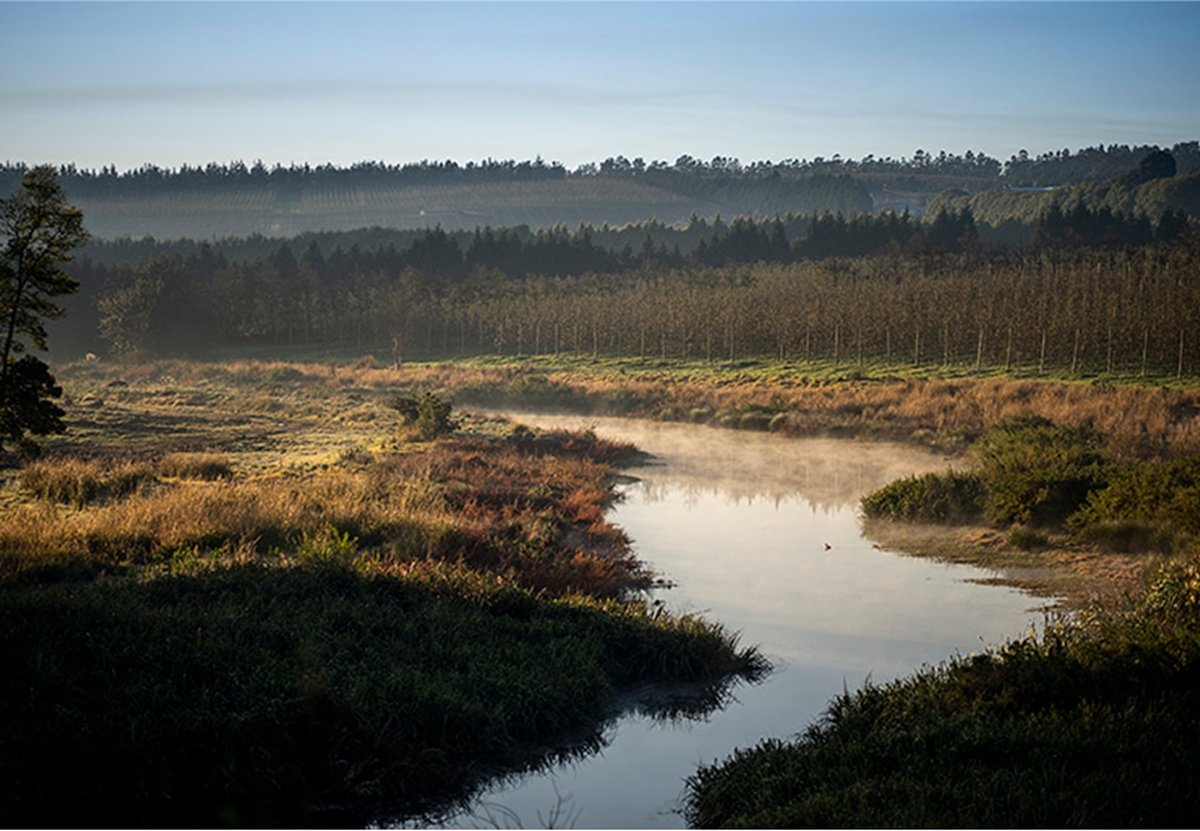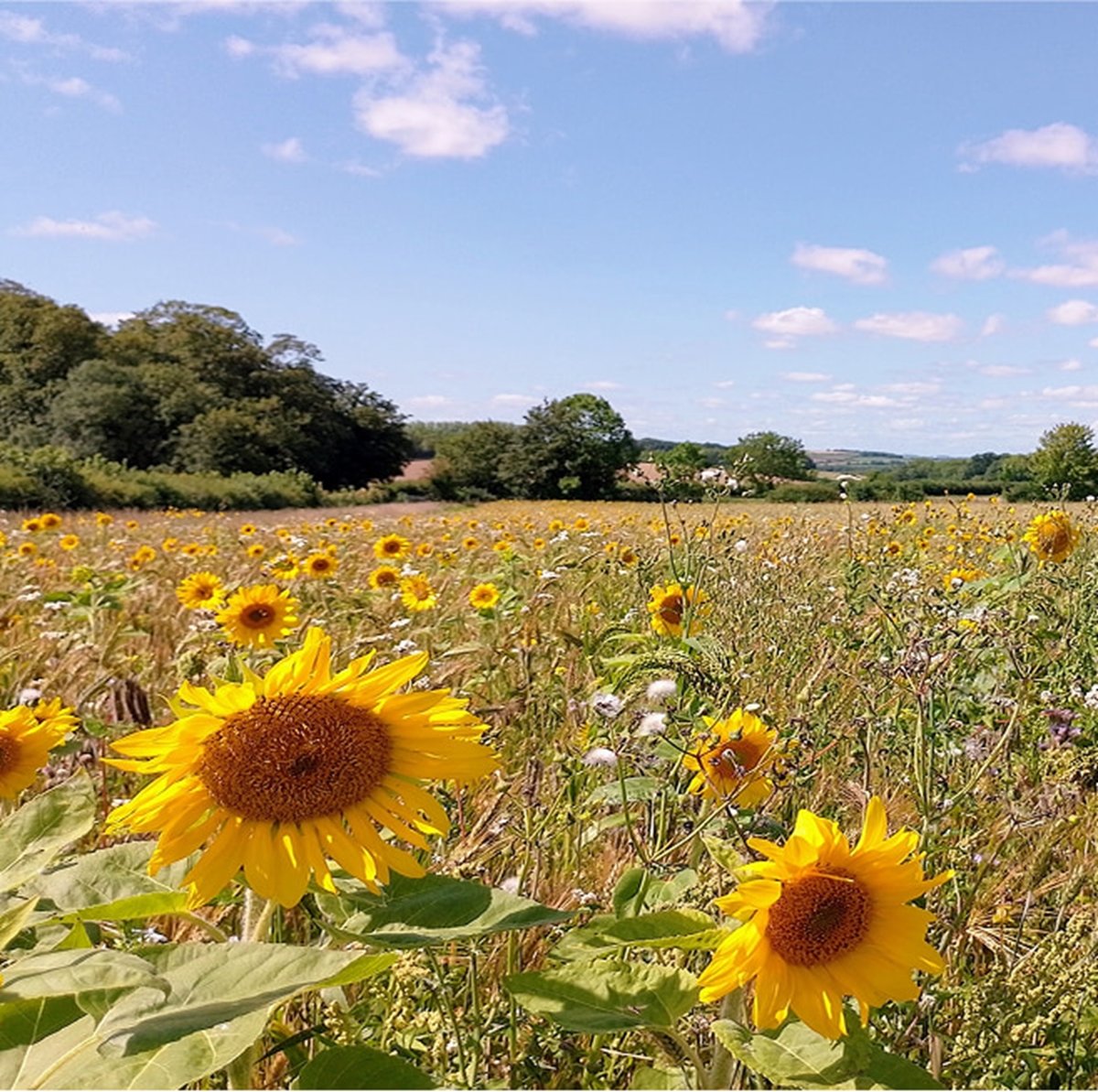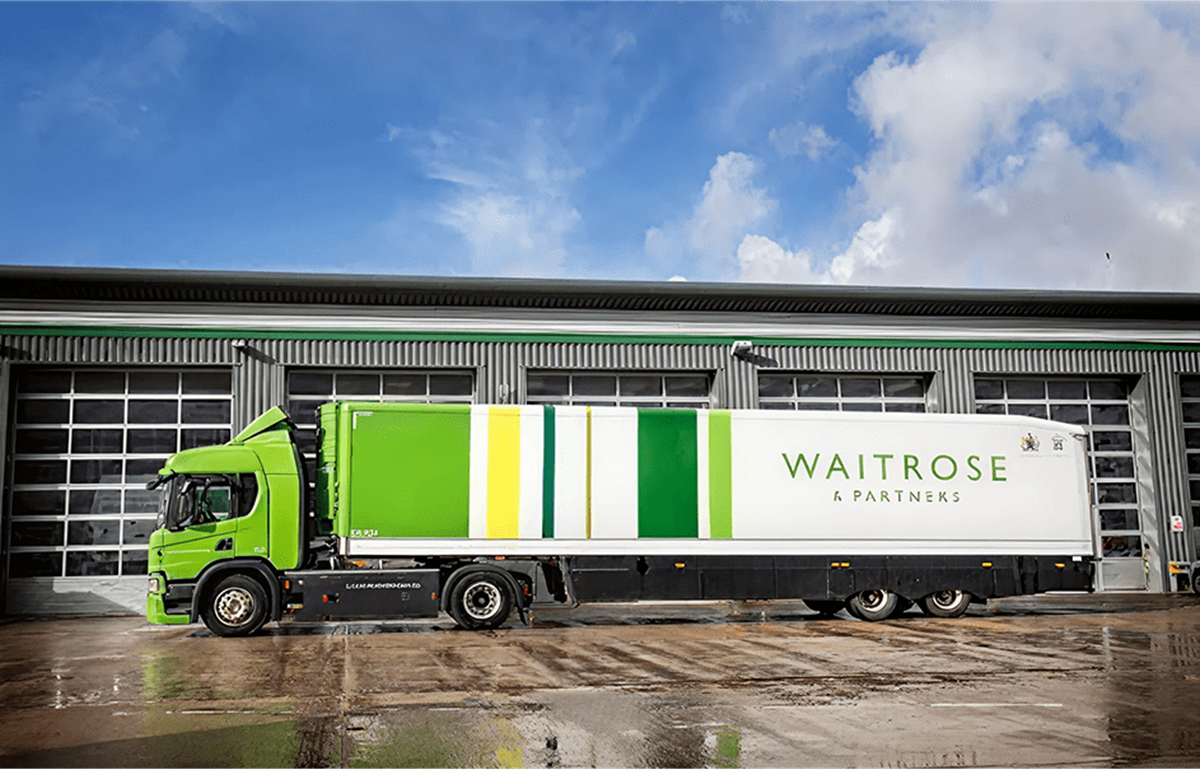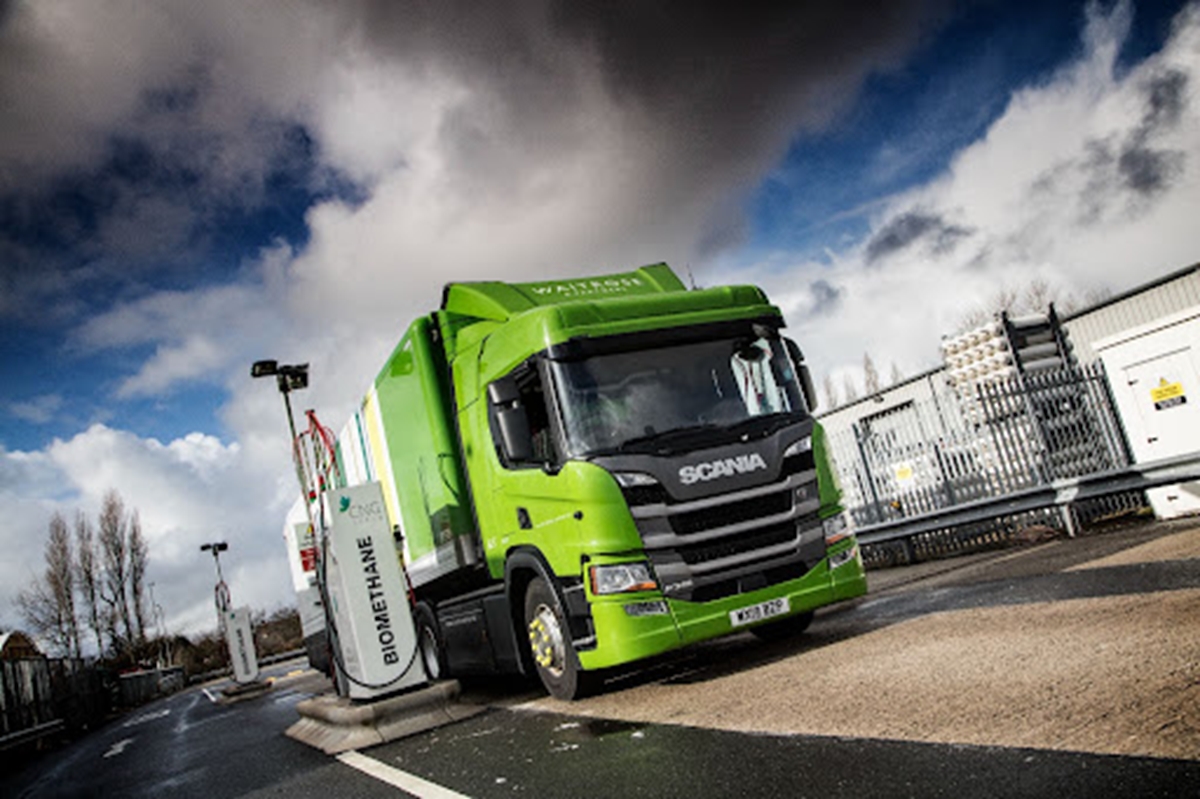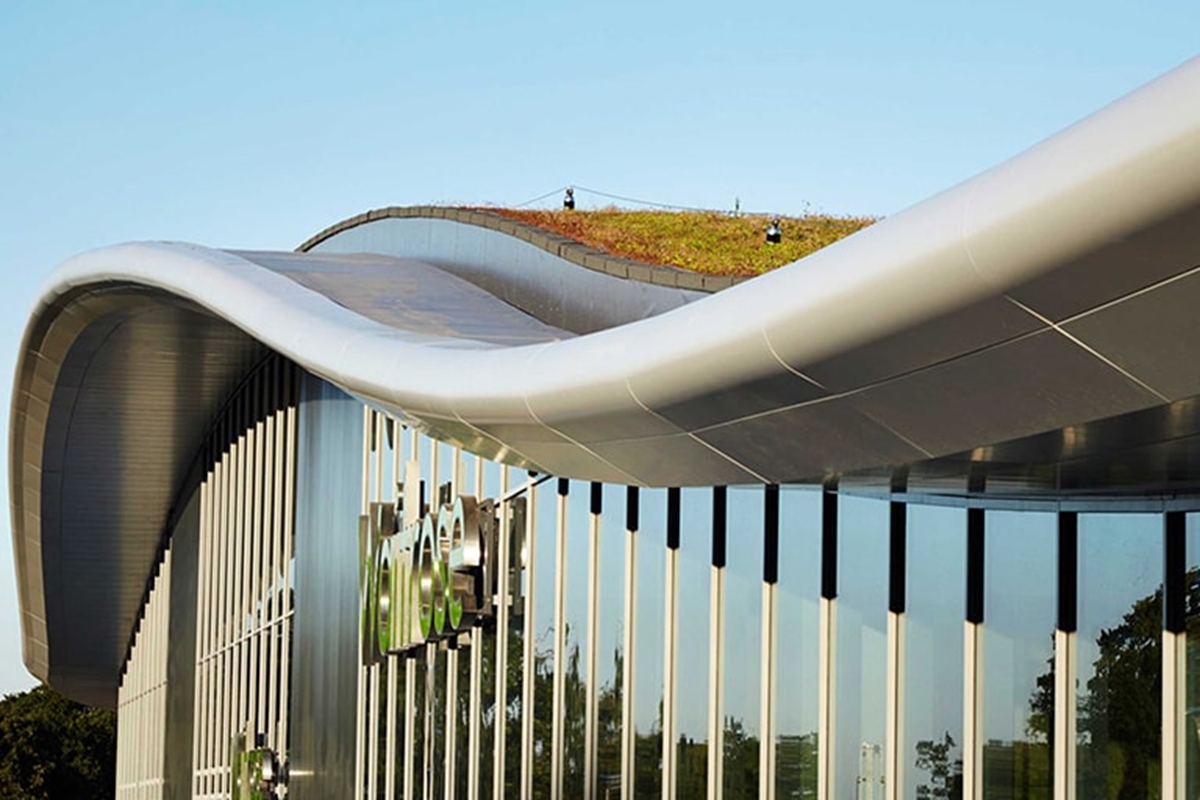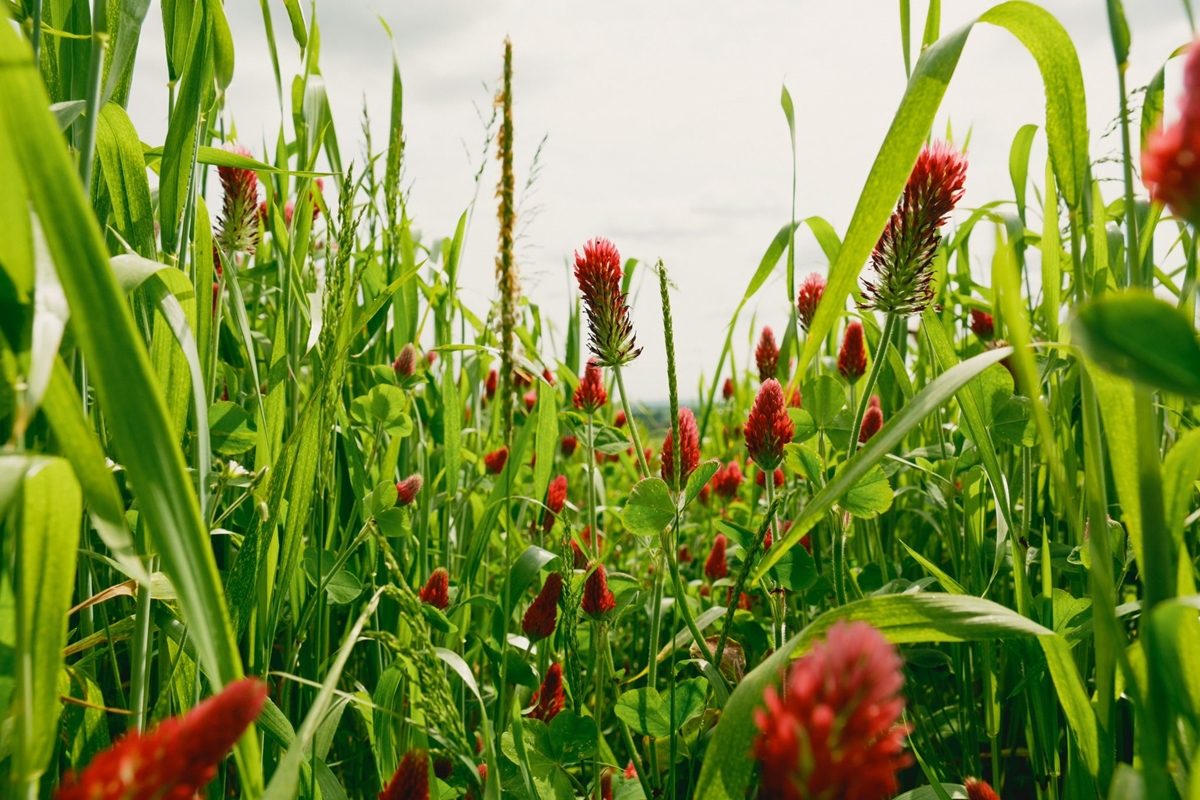To reduce our impact on climate change by reaching net zero in our own operations and supply chains.
Performance highlights

15%
Reduction in Scope 3 Forest, Land and Agriculture (FLAG) emissions since 2020/21 baseline
Net zero UK farms
As part of our commitment to achieve net zero across our UK farms by 2035, we’ve reduced the environmental footprint of our Leckford Estate farm. Key changes include using fewer pesticides and adding more hedgerows. We are also working with key suppliers to develop action plans to achieve net zero.
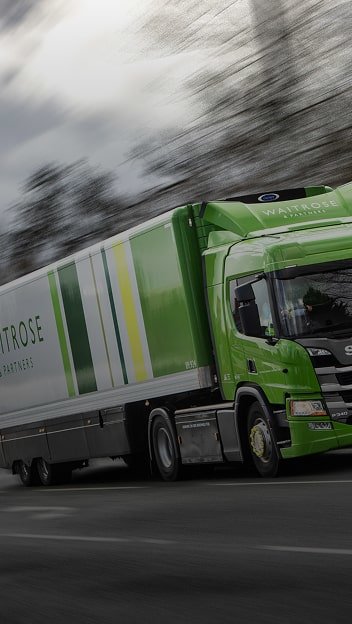
50%
We reduced transport carbon emissions by 50% compared to 2018.
Fleet decarbonisation
This year, we put an additional 43 biomethane trucks on the road and improved truck aerodynamics. We also tested a fully electric heavy-goods vehicle, operated 65 trucks that selfgenerate electricity to power their trailer refrigeration systems and increased the number of electrical connections to power trailer refrigeration at depots to 320
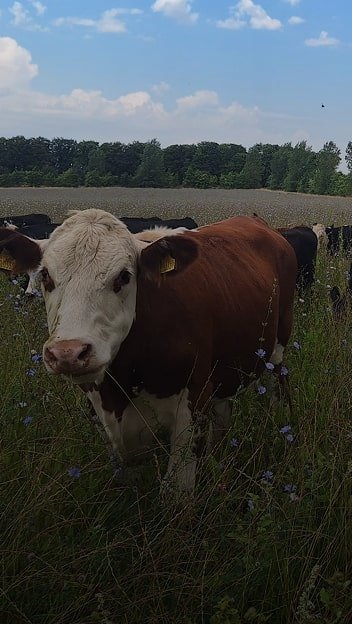
30%
Reduction in our Scope 3 Energy and Industrial emissions since 2020/21 baseline.
Carbon-cutting tools
We’re working hard to embed carbon-literate decision-making across our business, introducing helpful tools in key areas. In 2024 we focused on packaging. During 2025, we plan to introduce further tools covering transportation and ingredient replacement, empowering our teams to make positive choices that reduce our climate impact, particularly in Scope 3 emissions.
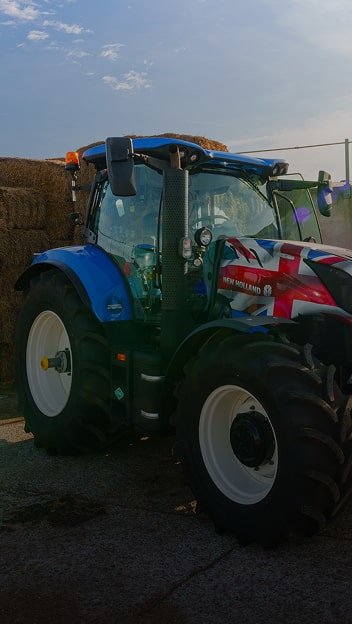
24.3%
reduction in group Scope 1 and Scope 2 emissions since 2020/21 baseline
Emissions reductions
We’ve continued our investment in infrastructure that helps us reduce our Scope 1 and Scope 2 emissions as part of our overall push to achieve net zero. This includes further installations of carbon saving systems, installing 18 heat pumps (14 installed as part of refrigeration upgrades and four as standalone heat pumps) in Waitrose shops and the pioneering AirDoor™ technology at nine of our John Lewis and Waitrose stores.
Our approach to climate action
We’re committed to avoiding the most dangerous impacts of climate change by achieving net zero and enhancing the Partnership’s resilience to the effects of such change.

We have set Partnership-wide science-based targets for reducing our climate impact, validated by the Science Based Targets initiative. Our overarching target is to reach net zero greenhouse gas emissions across our value chain by 2050. We have committed to reach net zero in our own operations (known as Scope 1 and Scope 2) by 2035.
We have also set interim 2030 targets to drive near-term action, as well as a 2025 zero deforestation target. We are proud to be among the first companies to set specific targets focused on greenhouse gas emissions from forest, land and agriculture (FLAG). Our FLAG targets encourage us to examine where we can reduce emissions from land use, while also building the capacity of the land and nature in our supply chain to remove carbon from the atmosphere.










